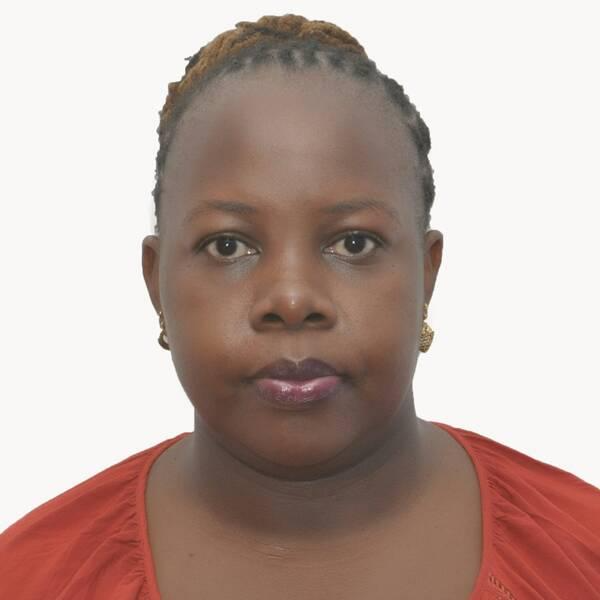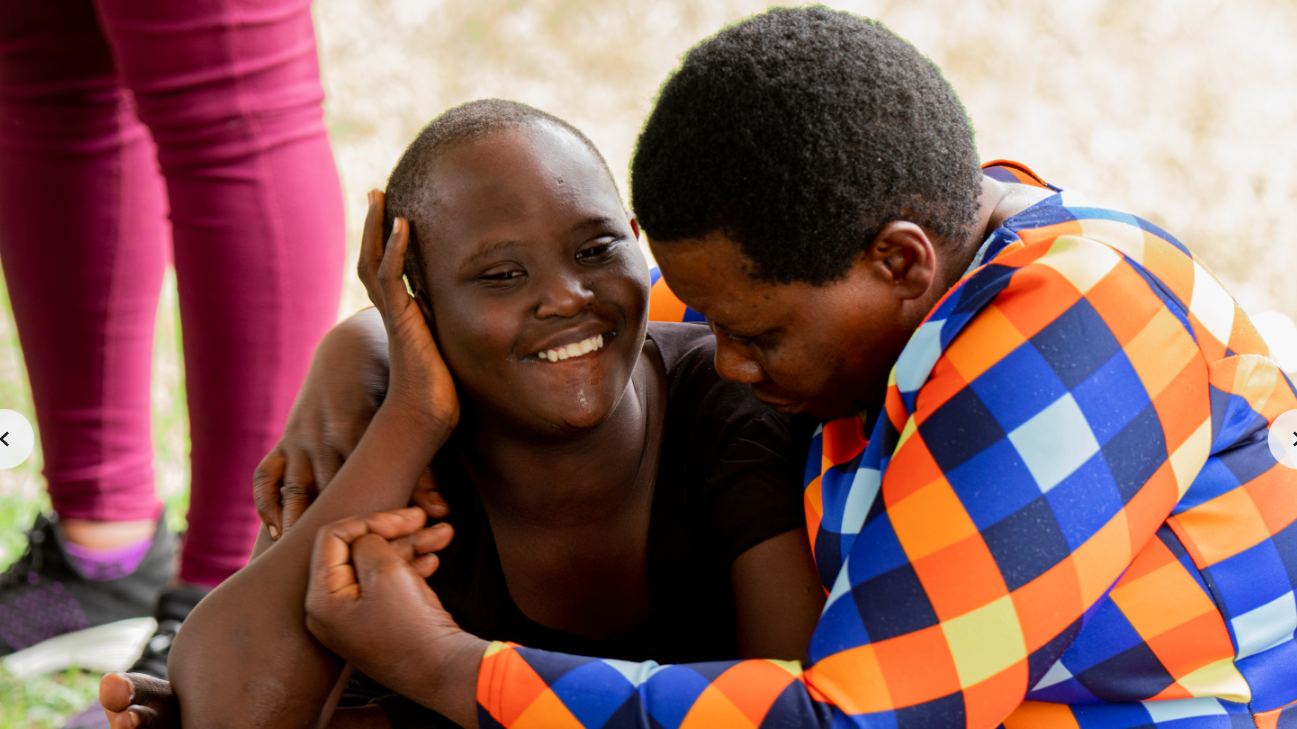Anne Praxyeda Gidudu believes every individual needs the opportunity to reach their full potential through inclusion, have a supportive family who can encourage them and manage their disability, and also participate in their community with as few barriers as possible. In this month’s column she shares more about her community-led work since co-founding the Support Agency for Intellectual Disabilities (SAID) in 2017. Movement Matters #10 – Support Agency for Intellectual Disabilities, Anne Praxyeda Gidudu
All Photo Credit: SAID
Sera Bulbul: Can you give us some information about your background, how you got to where you are?
Anne Praxyeda Gidudu: I co-founded the Support Agency for Intellectual Disabilities (SAID) in 2017 with the vision that people who are differently abled will be included in society. In my life working in communities, I came across people differently abled, some of who looked like my 25-year-old cousin and found myself thinking about how have they been supported and wondering how I can help them be in a friendly environment. This has been something I have been working on for over 16 years. Before SAID, I earned my Master’s degree in the UK. From the UK back to Uganda, is when my journey working with people with differently abled began.
Sera: What inspires you?
Anne: I have a passion for helping vulnerable people. I want to see people smile and know that I have supported them somehow. Being able to light up someone’s face makes me go to bed happy.
Sera: How can we transform attitudes and stigmas towards disabilities?
Anne: We believe that all people regardless of their abilities should be able to participate in community activities. One important one is creating awareness about inclusion in all aspects of life.
Representation is also important SAID has two people on our board who are differently abled. Focusing on representation within our community groups, ensuring that people differently abled belong to a space where they can express themselves.
Continued advocacy is key through involving community leaders in order to pave the way for them to understand us better and appreciate where we are coming from.
Promote inclusive learning in schools. Parents do not feel safe having their children go to an inclusive school because of the discrimination and stigma. Through raising awareness on inclusive learning and trainings teachers we can have reasonable accommodation for people differently abled to stay in school.
SAID works with parent support group work also cuts across psychosocial support and home visits, trainings, livelihoods through linking families to government programs. We aim to support parents of differently abled children to have livelihoods that they can engage in within their households at the same time as supporting their families. We aim to support people differently abled get employment based on their skills. We are trying to roll out an aspect of self-advocacy as well, to ensure that differently-abled people have the opportunity to advocate for themselves creating visibility in our communities.
Sera: What are some challenges you face in spreading awareness about inclusion?
Anne: The biggest challenge is the community stigmatizing people who are differently abled which shows the level of discrimination and ridicule.
Another issue is that there can be a lot of neglect within families, and even cases of parents separating after having a child differently abled. This is heartbreaking for the mother to care for this child alone.
There is a lot of poverty. Some families cannot have a livelihood because they stay home to take care of their children.
Cultural and religious beliefs stand out a lot. In most of our backgrounds, different tribes have different customs which they hold onto, a child with differently abled is looked at as a curse. They believe that the child has been bewitched and hence must be taken to a witch doctor for cleansing. Families are robbed of the little money they have and yet the child’s wellbeing doesn’t change.
Another challenge is insufficient resources to enable us to carry out some of these activities.




Sera: When you reflect on your life and work, what are you most proud of?
Anne: I am proud that I am still able to continue my passion to support people who are differently abled and in need. Being able to continuously work to provide support in different ways and put a smile on their faces is the end result where I know I’ve made a difference. I hold on to my passion and this has kept me going in my work and enabled me to see children who thought going to school was not possible to make friends in their class, or parents realizing their children can have a future.
Sera: How did you learn about MCLD and what inspired you to join the Movement?
Anne: I attended a workshop where I was inspired by who they are and their mandate spoke to the SAID. I am one of the first members of the Uganda Chapter of MCLD. MCLD believes that every person has a right to voice in decisions that affect their lives. People who are differently abled do not always have their voices heard, but MCLD’s mandate is inclusive as they work directly with communities.
Sera: Has the Movement changed your understanding of community-led development?
Anne: On joining MCLD-Uganda, I realized this work is not about SAID and it’s not about me, it is about the people in the community and how they are involved in decision-making. We were doing community-led development in our own way, but now from learning with MCLD, we are getting the right connotation.
Sera: What can MCLD do to better promote inclusion?
Anne: MCLD can intensify awareness among its members, focusing on fundamental values of inclusion. MCLD should broaden the space for networking, partnerships, and interaction, and also share experiences and learning. We are ready to spread our wings and fly in a space where we know we can be recognized and valued, and hold our heads high.
Sera: What advice would you give to someone who is new to community-led development?
Anne: Be a part of it. When you get involved and get a feel of it, then you understand it best.

Anne Praxyeda Gidudu is Co-Founder and Executive Director of SAID with over 16 years’ experience working with people differently abled she has a passion for. She believes every individual needs the opportunity to reach their full potential through inclusion, have a supportive family who can encourage them and manage their disability and also participate in their community with as few barriers as possible. She holds a Masters in Business Management and earned Care Essential trainings to support her work. Spending time with people differently abled gives her satisfaction. She has supported the campaign for self-advocacy of people differently able to create visibility in the community and enable them live dignified lives. She believes in “Keeping Hope Alive! Away from work, she enjoys reading, watching television and listening to music is very therapeutic.


